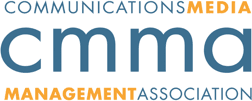Creating content brand-side allows leaders and producers-at-heart an opportunity to have an impact on health outcomes and perceptions of health topics in our culture. Since the pandemic, brands have been unapologetic to rally for their target audiences and tackle the topics that up until recently, may have seemed too taboo to touch.
Brands like CVS , Kimberly Clark, The Honey Pot , Tena , and Midi Health are embracing themes in their digital and social content that impact millions of women’s lives and that cross the work–life/personal–life barrier.
For those of us able to impact messages through in-house agencies or creative partnerships, there are certain themes that hit home harder than others.
MY CHANGING NARRATIVE
I consider myself to be resourceful and an efficient problem solver. Yet, nothing was more befuddling to me than when in my mid 40’s I started to feel not–quite–myself. It was subtle at first. I had a hard time sleeping… but figured I stayed up too late. Or, maybe it was because all ofa sudden I was HOT HOT HOT, especially at night. Then the weight gain started…but I hadn’t changed my diet or exercise routine. I finally decided that a trip to the doctor was in order, but that experience only left me more frustrated. My doctor casually mentioned that it was probably “just perimenopause” and moved on to other blood work. That was it. No advice. No education.And certainly no prescription to help alleviate symptoms.
My experience is far from an isolated one. In fact, many of my conversations over the last few years with friends and, more surprisingly, colleagues have centered around the many shifts and changes that are happening to the 51% of the population that are female. These changes often get watered down into seemingly innocent-enough sounding symptoms; trouble sleeping, night sweats, brain fog, irritability and weight gain. Yet, the impact is intense and stressful on a woman’s self-esteem and many feel a profound lossof self. This is compounded by the fact that doctors seem to have little advice or direction. The frustration is depicted perfectly in this advertisement for Midi Health created by the Holderness family.
THE NEW ERA OF WOMEN’S HEALTH IN BRAND STORYTELLING
Recently while attending the Media Post Brand Insider Summit for Pharma and Health I was happily surprised to see this issue being brought to the forefront. Instead of shying away from this topic Jan Weinstein, EVP Media, Publis Health and Tim Ragland, VP of Growth and Strategy for Wisp were part of a panel moderated by Erin Everhart, VP of Content and Events for Media Post called Taking Women’ Healthcare from Taboo to Top of Mind. Both Jan and Tim discussed how even the mere foundation of discussing women’s health is often still viewed as a taboo topic.
Jan experienced this first-hand when she had the opportunity to create and run the first woman-directed ad at the opening of the 2024 Superbowl. The ad created for the drug Veozah, the first non-hormonal treatment for night sweats and hot flashes, received backlash. Jan discussed how important this moment was since “There is nothing out there for women seeking solutions or even explanations for what they were going through.” Men commented that there was no place for a commercial about menopausal symptoms at a football game. Yet, 50% of the viewers are female. Women have been watching ads about erectile dysfunction for the past 20 years.
Tim communicated how even the advertisements he tries to place for WISP, a telehealth/telemedicine company that focuses on reproductive healthcare and sexual wellness, are constantly having their ad sets rejected simply for using the very words that define women’s heathcare vagina and vulva are two of the top words that often get flagged.
It was incredibly refreshing to hear all the open dialog happening about this topic during an industry summit. Discussions around perimenopause and menopause extended into the intimate dinners and cocktail hours created to encourage true connection. And most surprisingly, men were participating in the conversation as well. Several of them just as frustrated as they watched the women they love suffer through their own process.
Slowly but surely this is how the taboo of women’s health topics will begin to normalize. From one open conversation to another. We can’t change what we aren’t allowed to talk about. Thank you to Media Post for supporting the open dialogs necessary to create true change in women’s health. And cheers to the creative Producers and leaders working in health marketing who aren’t backing down from sharing information, boldly telling stories, marketing products, and innovating how to authentically connect with audiences…even when it’s hard.
![]()

